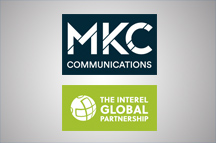On February 20th, Leo Varadkar Ireland’s Taoiseach (Prime Minister) since June 2017 took to his feet to address the Irish parliament, Dáil Eireann. After a disappointing general election result two week’s previously he had just failed to secure the support of parliament to continue in the position. This was the expected outcome and so he outlined his plans to tender his resignation to the President.
There was however a peculiar twist in the tale. Micheál Martin, leader of the opposition, leader of Varadkar’s traditional archrivals Fianna Fáil and the man who would be king had also failed to garner enough support. A third contender, Mary Lou McDonald, leader of the Sinn Féin party had made headlines around the world with a stunning surge in support, but she too fell far short of the required 80 votes. Parliament was deadlocked.
The Constitution, demonstrating impressive foresight, makes clear what happens in these circumstances. Leo Varadkar and his government must continue in a caretaker capacity and while doing so retain full executive powers.
It was a mundane and procedural end to a dramatic fortnight of political upheaval in Ireland. As he spoke, with his typical self-assuredness, Varadkar outlined how this interim period would operate.
He would ensure priorities, such as giving Ireland a voice in Brexit negotiations, would continue unabated. Aside from these, he gave a commitment, “no major new policy decisions, financial allocations or public appointments will be made unless absolutely necessary.” Little could he, or any of the 159 other members of parliament present, have known what would happen next.
Just three weeks later on March 12th, Leo Varadkar made a television addresses to the nation. The drama was added to by the fact he was speaking from Washington DC where he was attending St. Patrick’s Day celebrations and holding bilateral meetings with President Trump and other political leaders. That day we learned all schools, universities and cultural institutions were to close, anyone who could work from home was asked to do so. In the days that followed most shops, bars and restaurants were closed.
Finally, on March 27th, a stay at home order was issued and legislation providing emergency powers to the Government and other relevant authorities was also passed in the Dáil.
By any measure this is the most disruptive and intrusive piece of legislation ever imposed by an Irish Government. It would have been unimaginable when the recent election was called in Ireland on January 18th. Yet despite this there was widespread and almost universal praise.
There are four elements which have allowed a caretaker administration, and a party that took less than a quarter of the votes in February’s election, retain support for these seismic measures.
The first of these is knowledge. Governments are often criticised for not sharing it enough, particularly during a crisis. The approach to COVID-19 in Ireland has been to be open and honest. It included a second national address on St Patrick’s Day which painted a grim picture for the short term health of the nation. With the stark reality presented, there could be little dissent about the need to take dramatic measures to control the virus.
The second crucial tactic has been the central role of ‘the experts’. Ireland’s Chief Medical Officer, Dr. Tony Holohan, is the face of the country’s COVID-19 response, fronting daily press briefings on live TV. Three months ago, he was largely an unknown civil servant. Now he’s a household name, often referred to simply as ‘Tony’. He is politically independent, he is an expert and as a result he is trusted. Placing him front and centre has been critical to maintaining public trust.
Thirdly, it has been required to build a broad consensus. Without a mandate to impose new rules, achieving political agreement across a broad spectrum is the only option. This has undoubtedly been the biggest challenge, but it has largely been achieved. Opposition parties have been provided with the crucial knowledge, including weekly briefings with ‘Tony’ and have been consulted on the response throughout the process. There has been friction, there have even been arguments, but by focussing everything on the ‘public interest’ a consensus has been secured.
Public interest has been the final piece of the puzzle. Essential to maintaining support is ensuring that the response is not more difficult for citizens than the virus might be. Massive increases in welfare payments, a scheme to subsidise wages of struggling businesses, deferring various taxes, and a ban on evictions were all used as carrots before a single stick emerged.
And so these principles have maintained clarity and created public trust during a time of great political uncertainty. A new Government inches closer but may still be many weeks away. The caretaker government will now be tasked with the equally delicate job of easing restrictions while keeping control of the virus. This too will require a focus on these principles of sharing knowledge, using experts, building consensus and understanding the greater public interest.
by Brian Harrison, Client Director of MKC Communications in Dublin












